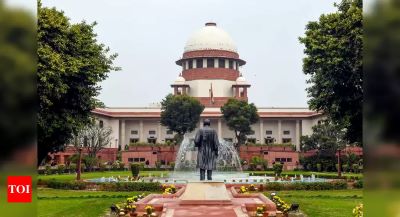Context-
The Supreme Court of India has agreed to examine whether Governors, by indefinitely delaying crucial Bills only to eventually refer them to the President, are facilitating Union interference in the legislative affairs of States, thereby undermining the federal structure of the country. This intervention comes in response to a petition filed by the State of Kerala, which has accused its Governor of unduly delaying Bills and subsequently referring them to the President, who acts on the advice of the Union Cabinet.
Background of the Petition
Kerala brought this issue to the forefront by highlighting the Governor's conduct of withholding Bills for two years before referring seven of them to the President. These Bills included amendments to State cooperative societies, Lokayukta, and university laws. The President, acting on the advice of the Centre, withheld assent to four of these Bills, even though none of them pertained to Centre-State relations.
Key Arguments by Kerala
The State of Kerala contended that the Governor should have promptly returned the Bills to the State Legislative Assembly with specific reasons for any objections, as stipulated by constitutional norms. Instead, the Governor's inaction denied the people of Kerala the benefits of the welfare legislation. Kerala argued that the Governor's actions allowed the Centre to make decisions on matters exclusively within the State's legislative domain.
Governor’s Power to Reserve Bills
Kerala argued that the Governor’s power to reserve a Bill for the President's consideration is limited to specific circumstances outlined in the proviso to Article 213 of the Constitution. The State asserted that the Governor’s indefinite sitting on the Bills and subsequent referral to the President, without providing reasons or adhering to the constitutional timeline, subverted the State’s legislative process.
Supreme Court's Intervention
Chief Justice D.Y. Chandrachud, heading the Bench, expressed the court's intent to scrutinize the circumstances under which Governors can refer Bills to the President. The court issued notices to the Additional Secretary to the Kerala Governor and the Home Ministry. The next hearing is scheduled for August 20.
Broader Implications and Other States
The Supreme Court's intervention is significant as it addresses a broader constitutional issue affecting other states as well. The court also issued notice to the Home Ministry and the Secretary to the West Bengal Governor on a similar petition filed by the West Bengal government, which argued that the Governor’s inaction undermines democratic governance.
Constitutional and Legal Framework
Kerala's petition highlighted several constitutional provisions allegedly violated by the Governor’s actions:
1. Article 14 (Right to Equality): The State argued that the arbitrary withholding of assent violated the right to equality.
2. Article 200 (Procedure for Granting Assent to Bills): This article outlines the procedure for a Governor to grant assent to Bills passed by the State Legislature.
3. Article 201 (Procedure Regarding Bills Reserved for President’s Consideration): This article details the process for Bills reserved for the President’s consideration, including the requirement for the President to act on the aid and advice of the Union Cabinet.
Kerala contended that the President’s withholding of assent without providing reasons was arbitrary and violated these constitutional provisions.
The Supreme Court will examine several key legal questions, including:
1. When can Governors legitimately refer Bills to the President?
2. What is the extent of the Governor’s discretion in withholding assent to State Bills?
3. Can the Governor’s actions be considered a means of Union interference in State legislative affairs?
Conclusion
The Supreme Court's decision to examine the actions of Governors in withholding assent to State Bills and referring them to the President marks a critical juncture in the interpretation of federalism in India. The court's findings will have far-reaching implications for the balance of power between the Union and the States, as well as the functioning of democratic governance within the States. The case underscores the delicate balance envisaged by the Constitution between the three organs of the State and the necessity for clear guidelines on the Governor's role in the legislative process.
|
Probable questions for UPSC Mains Exam- 1. What are the constitutional provisions allegedly violated by the Governors' actions in delaying and referring State Bills to the President, as highlighted by Kerala in its petition to the Supreme Court? (10 Marks, 150 Words) 2. How does the Supreme Court's decision to examine the actions of Governors in withholding assent to State Bills and referring them to the President potentially impact the balance of power between the Union and the States in India? (15 Marks, 250 Words) |
Source - The Hindu







